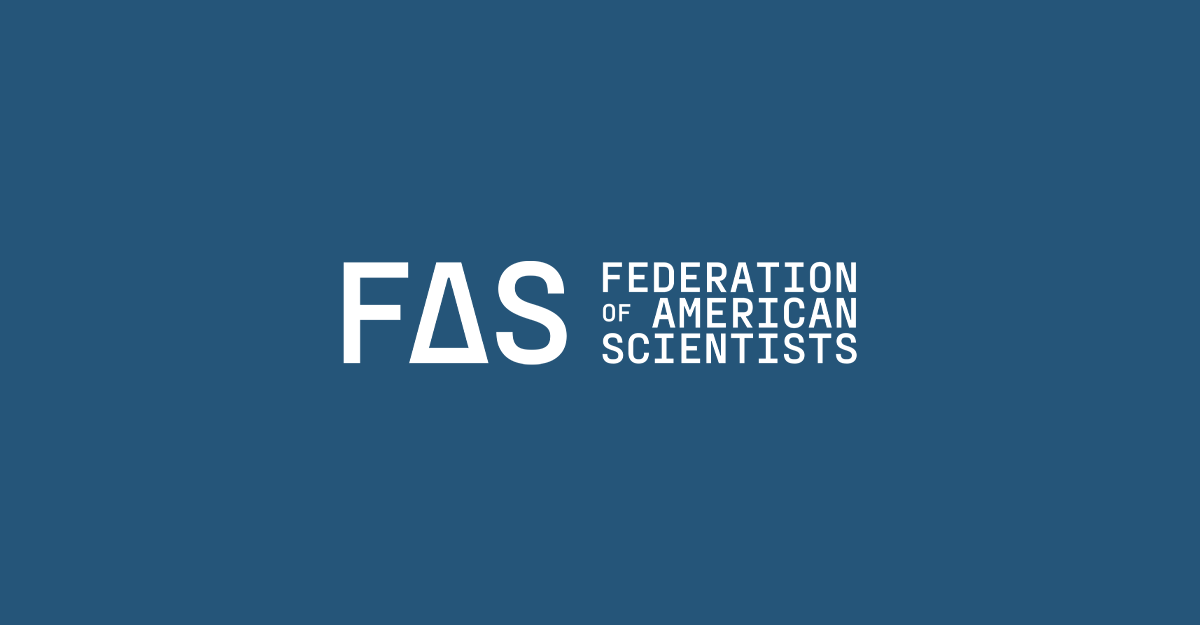
Federation of American Scientists Statement on the Supreme Court’s Elimination of Chevron Deference
The decision casts uncertainty on the role of scientific and technical expertise in federal decision-making, potentially harming our nation’s ability to respond effectively
Washington, D.C. – June 28, 2024 – Today’s ruling on Loper Bright Enterprises v. Raimondo and its companion case by the U.S. Supreme Court (SCOTUS) eliminating Chevron deference, a Reagan-era interpretation, may handicap the government’s ability to rely on science and technology expertise to address pressing issues, warns the Federation of American Scientists.
“For a generation, Chevron deference has encouraged federal agencies to draw – and act – upon the science community’s expertise. The decision creates uncertainty about how federal action will be reliably informed by science and technology expertise moving forward and raises the specter of greater federal inaction, which is not the answer for the myriad challenges we face as a country,” says Dan Correa, CEO of FAS.
As a non-partisan organization, FAS values evidence first and foremost. As currently structured, the courts and Congress lack the infrastructure to draw on the expertise of scientists and technologists that are required in many areas of federal agency action.
Scientific and technical experts are needed now more than ever
“The United States has benefitted from scientific and technical experts to interpret ambiguity and implement the law according to the knowledge-specific demands of a particular issue; judges cannot and should not be expected to know every aspect and detail of technical policy,” says James Campbell, J.D., Wildfire Policy Specialist at the Federation of American Scientists.
We rely on judges for their legal expertise, not their knowledge of nuclear weapons, healthcare practices, novel energy technologies, climate models, epidemiology, and natural disasters.
The elimination of the Chevron doctrine will likely limit the role of science in policy making and scientists in agencies. Expertise from scientists and technologists within government will be critical as the country works to keep pace with the speed of progress in critical and emerging areas such as artificial intelligence. “What do we do if we cannot act as fast as potential dangers are exposed?” asks Grace Wickerson, M.S., Health Equity Policy Manager at the Federation of American Scientists.
“Government has a responsibility to invest in science and technology expertise and to utilize that expertise to maximize the efficiency, dynamism, and intended impacts of its programs. This technical expertise is critical to responding to our most pressing issues, including climate change, modernizing infrastructure, and improving public health. Scientists in agencies should have the ability to implement their vast knowledge on topics of importance to all Americans” says Kelly Fleming, Ph.D, Associate Director, Clean Energy at the Federation of American Scientists.
Additional Background
Chevron deference refers to SCOTUS’ 1984 decision in Chevron v. Natural Resources Defense Council, which recognized that when Congress leaves ambiguity — whether intended or not — in the laws it passes, courts should defer to the federal agencies’ valid interpretation of those laws. Federal agencies are appropriate for this role given their ample subject matter expertise and their accountability to the American people through congressional oversight and presidential elections.
###
ABOUT FAS
The Federation of American Scientists (FAS) works to advance progress on a broad suite of contemporary issues where science, technology, and innovation policy can deliver dramatic progress, and seeks to ensure that scientific and technical expertise have a seat at the policymaking table. Established in 1945 by scientists in response to the atomic bomb, FAS continues to work on behalf of a safer, more equitable, and more peaceful world. More information at fas.org.
The transition to a clean energy future and diversified sources of energy requires a fundamental shift in how we produce and consume energy across all sectors of the U.S. economy.
A deeper understanding of methane could help scientists better address these impacts – including potentially through methane removal.
While it is reasonable for governments to keep the most sensitive aspects of nuclear policies secret, the rights of their citizens to have access to general knowledge about these issues is equally valid so they may know about the consequences to themselves and their country.
Advancing the U.S. leadership in emerging biotechnology is a strategic imperative, one that will shape regional development within the U.S., economic competitiveness abroad, and our national security for decades to come.